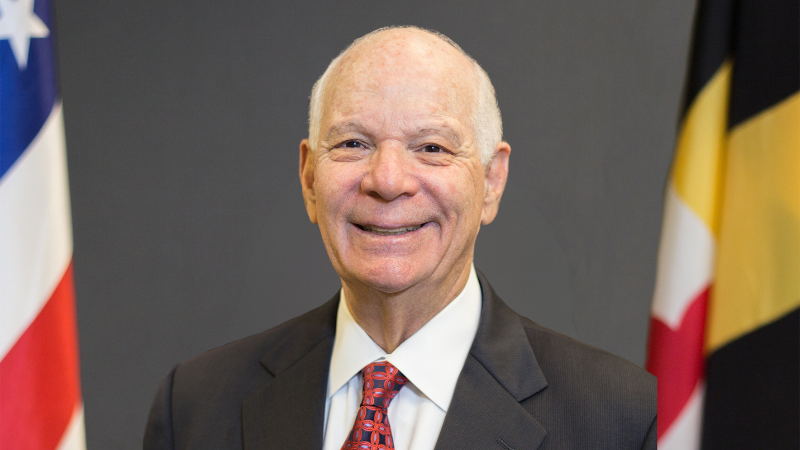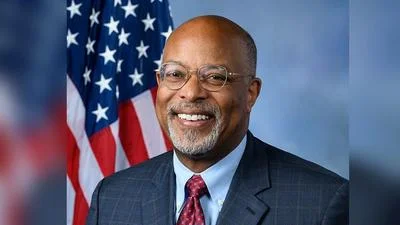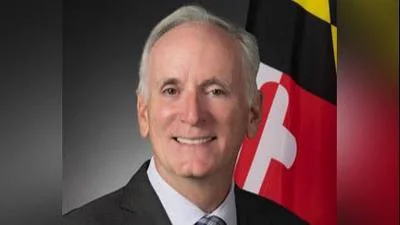Ben Cardin | Sen. Ben Cardin Official U.S. Senate headshot
Ben Cardin | Sen. Ben Cardin Official U.S. Senate headshot
Washington, D.C. – On the 10-year anniversary of the U.S. v. Windsor decision, U.S. Senator Ben Cardin joined Senators Elizabeth Warren (D-Mass.) and Susan Collins (R-Maine) and 45 of their Senate colleagues in reintroducing the bipartisan Refund Equality Act to ensure that legally-married same-sex couples have the tax refunds they always should have been able to claim. The bill would allow these couples – who, until the U.S. Supreme Court’s 2013 decision in U.S. v. Windsor, were barred from filing federal taxes jointly – to file amended tax returns back to the date of their marriage, helping them secure an estimated total of $55 million in refunds. The legislation will be reintroduced by Rep. Judy Chu (D-Calif.) as part of the PRIDE Act. Senator Warren originally introduced this legislation with Representative Richard Neal (D-Mass.), along with 71 of their congressional colleagues, in 2017.
“Equal treatment under the law is a founding principle of this nation, and the Refund Equality Act is in service of that principle,” said Senator Ben Cardin, Special Representative on Anti-Semitism, Racism, and Intolerance for the Organization for Security and Cooperation in Europe (OSCE) Parliamentary Assembly. “Same-sex married couples should be afforded the opportunity to amend their tax returns to receive full benefits. Modernizing our tax code to ensure that all married couples are treated equally is fair, just and long overdue.”
“For nearly a decade, legally married same-sex couples were denied the tax refunds they deserved because of who they love,” said Senator Elizabeth Warren. “It’s time for Congress to make it right by passing the Refund Equality Act to address this shameful discrimination and ensure same-sex couples get the refunds they are owed.”
“For years, same-sex married couples were denied the ability to file taxes jointly and claim tax refunds they had rightfully earned because of the Defense of Marriage Act,” said Representative Judy Chu. “Ten years ago today, the Supreme Court’s Windsor decision corrected this injustice, but IRS regulations prevented these couples from claiming all of the refunds they should have earned. The PRIDE Act would finally address this by enabling same-sex couples to rightfully claim the tax refunds they deserve as well as update the tax code to promote dignity and equality by erasing gendered language of husband and wife that leaves out same-sex couples. This Pride Month, I am proud to join with my House and Senate colleagues in introducing this pro-equality legislation.”
“Prior to the U.S. v. Windsor decision in 2013, same-sex couples were forced to file as individuals and pay more in taxes just because of who they love. We need to acknowledge and right this past wrong,” said Senator Dick Durbin. “This bill would allow these couples the chance they deserve to amend their tax returns and access the full benefits that they were denied. Pride is about celebration and action – and I encourage my colleagues to act on this piece of legislation.”
“Filing taxes is a critical responsibility we all share as Americans, and all couples should be able to file their taxes jointly if they choose to do so,” said Senator Tom Carper. “While I’m working to make the tax filing system more accessible, we also must ensure it is equitable. The 2013 U.S. v. Windsor decision did just that and I’m proud to support the reintroduction of this legislation to give legally-married same-sex couples the opportunity to amend their tax returns and file jointly.”
“For years, legally married same-sex couples were unable to maximize their tax benefits by filing jointly,” said Sen. Mark Warner. “The Refund Equality Act would give families across the nation the opportunity to correct that wrong and recoup old tax refunds that are rightfully theirs. Let’s cut the red tape and rectify one of the many bureaucratic and financial obstacles that same-sex couples face.”
“Married couples deserve to be treated equally with the same protections under the law,” said Senator Martin Heinrich. “It’s unacceptable that our tax code currently prevents many same-sex couples from claiming the tax refund they earned and are entitled to. This legislation rights this wrong and takes an important step forward to achieving full marriage equality.”
“Forcing legally-married same-sex couples to file taxes as individuals—oftentimes paying more in taxes than other legally-married couples—was unfair and discriminatory,” said Senator Jeff Merkley. “Equality means equality, and it’s time to right this wrong.”
“The Refund Equality Act will help same-sex married couples get the refunds they rightfully deserve after being forced to file their federal taxes separately for years after being legally married,” said Senator Patty Murray. “This is just common-sense—and it’s so important for LGBTQ people in Washington state, where same-sex marriage was recognized years before it was established nationwide.”
“For far too long, same-sex couples in Arizona were denied equal treatment under the law, including in our federal tax code,” said Senator Mark Kelly. “I’m proud to support this common-sense, bipartisan bill to provide same-sex couples equal tax benefits.”
“For years, same-sex couples were disgracefully denied the same rights as their heterosexual counterparts,” said Leader Chuck Schumer. “Last Congress, we fought to make sure that federal law protects the right to marry who you love – regardless of their gender. This was a historic milestone, but we must continue to strive to correct the historic wrongs of LGBTQ+ discrimination. Passing the Refunding Equality Act would finally give same-sex couples the tax refunds they lawfully deserve.”
Specifically, the Refund Equality Act would:
- Allow same-sex couples who were married in jurisdictions that recognize same-sex marriage – including Massachusetts, Connecticut, California, Iowa, New Hampshire, Vermont, and Washington, D.C – to file for income tax adjustments prior to 2013, back to the date of their marriage.
- Create exemptions for two Internal Revenue Code limitations on amending returns: Section 6013(b), which limits to three years the period within which a married couple may make an election to file jointly after having filed separate returns, and Section 6511(a), which generally requires a claim for credit or refund of an overpayment of tax to be filed within three years from the time the return was filed.
- Follow other exemptions to the three-year period to amend returns, ranging from adjustments to capital loss carryback to adjustments for retired service members who receive an award of disability compensations.
- Return $55 million in refunds to taxpayers whose marriages were systematically discriminated against, according to a 2021 estimate by the Joint Committee on Tax.
This legislation is being reintroduced alongside Sen. Wyden’s Equal Dignity for Married Taxpayers Act, which Sen. Warren co-sponsors and would protect LGBTQ+ Americans from inequality and discrimination by removing gender-specific references to marriage in the tax code. Today, Rep. Judy Chu (D-Calif.) is also announcing reintroduction of the PRIDE Act, which combines the Refund Equality Act and Equal Rights for Married Taxpayers Act.
The legislation is also endorsed by the Human Rights Campaign (HRC), the National Center for Lesbian Rights (NCLR), Equality California, Center for LGBTQ Economic Advancement & Research (CLEAR), Services & Advocacy for GLBT Elders (SAGE), Children of Lesbians and Gays Everywhere (COLAGE), National Women’s Law Center (NWLC), National Center for Trasngender Equality, Movement Advancement Project, MassEquality
“The Refund Equality Act would be an important step to heal same-sex spouses specifically and the LGBTQI+ community broadly from the systemic harms that were implemented by discriminatory and hate-filled lawmakers seeking to deprive our community of the same benefits that heterosexual and cisgender people enjoy,” said Spencer Watson, Executive Director of the Center for LGBTQ Economic Advancement & Research. “Restoring funds to our community members that were unfairly taken will help those people create financial security for themselves and their families, and help shrink wealth disparities between LGBTQI+ people and their non-LGBTQI+ peers.”
Original source can be found here.






 Alerts Sign-up
Alerts Sign-up